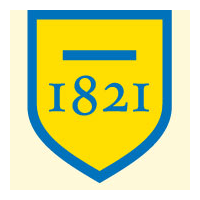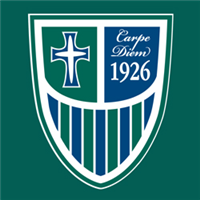What do they do?
Maintain a sterile field to provide support for physicians and nurses during endoscopy procedures. Prepare and maintain instruments and equipment. May obtain specimens.
Also known as:
Certified Endo Tech (Certified Endoscopy Technician), Certified Endoscopic Reprocessor (CER), Certified Flexible Endoscope Reprocessor (CFER), Certified Flexible Endoscopy Reprocessor (CFER), Endoscope Technician (Endoscope Tech), Endoscopy Specialty Technician (Endoscopy Specialty Tech), Endoscopy Technician (Endoscopy Tech), GI Tech (Gastrointestinal Technician), Procedural Assistant (Procedural Asst), Scope Tech (Scope Technician)
-
5.6%
Change
Ranks #40 in job growth rate300Job Openings
Ranks #19 in net job growth
-
Ultimate Medical Academy
Clearwater, FL
-
Pennsylvania Western University
California, PA
-
Universidad Central de Bayamon
Bayam�n, PR
-
Widener University
Chester, PA
-
The College of Health Care Professions-South San Antonio
San Antonio, TX
Looking for colleges that offer a specific major? Use the College Match Tool to find your best-matched schools and discover your estimated Net Price!
- Doctorate or Professional Degree (2%)
- Master's degree (5%)
- Bachelor's degree (17%)
- Associate's degree (14%)
- Some college, no degree (29%)
- High school diploma equivalent (28%)
- Less than high school diploma (5%)
Most Popular Majors that prepare Endoscopy Technicians
-
#1
-
Degrees Granted
3,426
-
Female Students
3,320
-
Male Students
106
-
Median Starting Salary
$37,800
-
-
#2
-
Degrees Granted
564
-
Female Students
535
-
Male Students
29
-
Median Starting Salary
$37,800
-
-
#3
-
Degrees Granted
405
-
Female Students
339
-
Male Students
66
-
Median Starting Salary
$38,300
-
-
#4
-
Degrees Granted
265
-
Female Students
247
-
Male Students
18
-
Median Starting Salary
$37,800
-
-
#5
-
Degrees Granted
95
-
Female Students
91
-
Male Students
4
-
Median Starting Salary
$38,300
-
People in this career often have these skills:
- Reading Comprehension - Understanding written sentences and paragraphs in work-related documents.
- Active Listening - Giving full attention to what other people are saying, taking time to understand the points being made, asking questions as appropriate, and not interrupting at inappropriate times.
- Critical Thinking - Using logic and reasoning to identify the strengths and weaknesses of alternative solutions, conclusions, or approaches to problems.
People in this career often know a lot about:
- English Language - Knowledge of the structure and content of the English language including the meaning and spelling of words, rules of composition, and grammar.
- Customer and Personal Service - Knowledge of principles and processes for providing customer and personal services. This includes customer needs assessment, meeting quality standards for services, and evaluation of customer satisfaction.
- Medicine and Dentistry - Knowledge of the information and techniques needed to diagnose and treat human injuries, diseases, and deformities. This includes symptoms, treatment alternatives, drug properties and interactions, and preventive health-care measures.
- Education and Training - Knowledge of principles and methods for curriculum and training design, teaching and instruction for individuals and groups, and the measurement of training effects.
- Computers and Electronics - Knowledge of circuit boards, processors, chips, electronic equipment, and computer hardware and software, including applications and programming.
People in this career often have talent in:
- Near Vision - The ability to see details at close range (within a few feet of the observer).
- Problem Sensitivity - The ability to tell when something is wrong or is likely to go wrong. It does not involve solving the problem, only recognizing that there is a problem.
- Oral Comprehension - The ability to listen to and understand information and ideas presented through spoken words and sentences.
- Oral Expression - The ability to communicate information and ideas in speaking so others will understand.
- Written Comprehension - The ability to read and understand information and ideas presented in writing.
- Arm-Hand Steadiness - The ability to keep your hand and arm steady while moving your arm or while holding your arm and hand in one position.
People in this career often do these activities:
- Clean medical equipment.
- Maintain medical equipment or instruments.
- Collect biological specimens from patients.
- Monitor medical equipment to ensure proper functioning.
- Assist practitioners to perform medical procedures.
- Operate medical equipment.
- Prepare patient treatment areas for use.
- Inventory medical supplies or equipment.
- Attend educational events to update medical knowledge.
- Teach medical procedures to healthcare personnel.
- Move patients to or from treatment areas.
- Adjust positions of patients on beds or tables.
This page includes data from:

 Occupation statistics: USDOL U.S. Bureau of Labor Statistics Occupational Employment Statistics
Occupation statistics: USDOL U.S. Bureau of Labor Statistics Occupational Employment Statistics
 Videos: CareerOneStop, USDOL/ETA and the Minnesota Department of Employment & Economic Development
Videos: CareerOneStop, USDOL/ETA and the Minnesota Department of Employment & Economic Development









